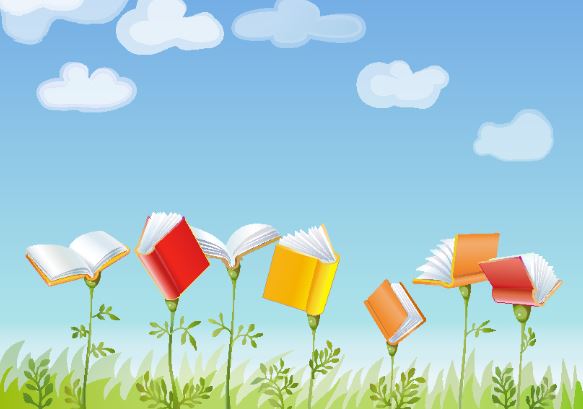Reading Can Combat Anxiety and Depression

The therapeutic power of literature is amazing. When you’re invaded by sadness, anxiety, and stress, reading novels and poetry can transform your thoughts, feelings, and emotions.
Through reading, you can come to understand your state of mind and improve your behavior, because in some way, you can find yourself in the pages of a good novel or in a beautiful poem.
When you read, the brain is able to experience and empathize with the words, which helps you identify and express what’s happening inside of you. This has been documented extensively since the Golden Age of Greece.

It’s interesting how Aristotle had already noticed this centuries ago, when he invited us to reflect sincerely and authentically on what people called the gift of the written word. Likewise, in 1904, Kafka made one such reflection in his Letter to Oskar Pollak:
“If the book we’re reading doesn’t wake us up with a blow on the head, what are we reading it for? So that it will make us happy, as you write? Good Lord, we would be happy precisely if we had no books, and the kind of books that make us happy are the kind we could write ourselves if we had to. But we need the books that affect us like a disaster, that grieve us deeply, like the death of someone we loved more than ourselves, like being banished into forests far from everyone, like a suicide. A book must be the axe for the frozen sea inside us.”

Literature, a sweet medicine
Literature is a sweet medicine that brings us closer to healing, because it allows us to normalize and validate how we’re feeling, as well as reason properly, in a healthy way.
Releasing pain through reading is a therapeutic blessing that helps significantly in the process of improvement and emotional healing, in part because it teaches us and helps us to understand what’s happening.
In other words, it gives us the tools and resources we need to find clarity during a mental block. With all this in mind, The Reading Agency and the Society of Chief Librarians are responsible for selecting and compiling the best novels and poetry that help combat anxiety and depression.

Here are some examples from that list, which ranges from The Feeling Good Handbook by David D. Burns, to A Little History of the World by Ernst H. Gombrich, with other humorous works in between, like those by author Bill Bryson.
- The Adventures of Tom Sawyer by Mark Twain. The curiosity and desire for adventure in this novel promote exploration and the push to achieve something different in life.
- The Little Prince by Antoine de Saint-Exupéry. No matter what stage you’re at in life, you can always learn a lot about love, friendship, people’s inner lives from this book.
- Diary of a Body by Daniel Pennac. This novel talks about pain, fear, death, illness, and many other kinds of suffering that we can identify with.
- Sophie’s World by Jostein Gaarder. This beautiful book encourages you to keep going and to get interested in the multiple aspects of your inner life.
- Lives Other than My Own by Emmanuel Carrère. In this book, stories about different people are told that help us understand the different realities of the people around us, based on the fact that everybody has their own story that should be heard.
- Man’s Search for Meaning by Viktor Frankl. A classic that will help you reflect deeply on your life and the difficulties you have to deal with.
- The Ugly Duckling (Les vilains petits canards) by Boris Cyrulnik. Having a difficult life doesn’t mean you have to fall apart; you can always move forward. This is the lesson this book teaches, and the principle behind human resilience.
- Examined Life: How We Lose and Find Ourselves by Stephen Grosz. Stories of patients who have resolved their problems.
- The Feeling Good Handbook by David D. Burns. This book presents a non-pharmacological treatment of depression.
- A Little History of the World by Ernst H. Gombrich. An authentic reflection on the course of history and our overlapping lives.
- Don’t Give Up by Mario Benedetti. This poem promotes emotional strength, which we all must find in times of helplessness.
In conclusion, literature can be tremendously transformative. Why? Because through reading, we can make sense of the internal chaos that reigns within us during bad times and traumatic events.
For all these reasons, I recommend that you try to remember all the information presented in this article, because over time, a good book or beautiful poem can help you recognize, ease, and heal the emotional pain that can make it feel like you’re submerged in icy water.

Bibliography:
The Reading Agency; Society of Chief Librarians (2015). Reading Well Books on Prescription: Evaluation 2014-15. October 2015. 36 p. Available at: http://readingagency.org.uk/news/RWBOPEvaluationReport2015.pdf
Baikie, K., & Wilhelm, K. (11 August 2005). Emotional and physical health benefits of expressive writing. Retrieved from BJPsych Advances.
The therapeutic power of literature is amazing. When you’re invaded by sadness, anxiety, and stress, reading novels and poetry can transform your thoughts, feelings, and emotions.
Through reading, you can come to understand your state of mind and improve your behavior, because in some way, you can find yourself in the pages of a good novel or in a beautiful poem.
When you read, the brain is able to experience and empathize with the words, which helps you identify and express what’s happening inside of you. This has been documented extensively since the Golden Age of Greece.

It’s interesting how Aristotle had already noticed this centuries ago, when he invited us to reflect sincerely and authentically on what people called the gift of the written word. Likewise, in 1904, Kafka made one such reflection in his Letter to Oskar Pollak:
“If the book we’re reading doesn’t wake us up with a blow on the head, what are we reading it for? So that it will make us happy, as you write? Good Lord, we would be happy precisely if we had no books, and the kind of books that make us happy are the kind we could write ourselves if we had to. But we need the books that affect us like a disaster, that grieve us deeply, like the death of someone we loved more than ourselves, like being banished into forests far from everyone, like a suicide. A book must be the axe for the frozen sea inside us.”

Literature, a sweet medicine
Literature is a sweet medicine that brings us closer to healing, because it allows us to normalize and validate how we’re feeling, as well as reason properly, in a healthy way.
Releasing pain through reading is a therapeutic blessing that helps significantly in the process of improvement and emotional healing, in part because it teaches us and helps us to understand what’s happening.
In other words, it gives us the tools and resources we need to find clarity during a mental block. With all this in mind, The Reading Agency and the Society of Chief Librarians are responsible for selecting and compiling the best novels and poetry that help combat anxiety and depression.

Here are some examples from that list, which ranges from The Feeling Good Handbook by David D. Burns, to A Little History of the World by Ernst H. Gombrich, with other humorous works in between, like those by author Bill Bryson.
- The Adventures of Tom Sawyer by Mark Twain. The curiosity and desire for adventure in this novel promote exploration and the push to achieve something different in life.
- The Little Prince by Antoine de Saint-Exupéry. No matter what stage you’re at in life, you can always learn a lot about love, friendship, people’s inner lives from this book.
- Diary of a Body by Daniel Pennac. This novel talks about pain, fear, death, illness, and many other kinds of suffering that we can identify with.
- Sophie’s World by Jostein Gaarder. This beautiful book encourages you to keep going and to get interested in the multiple aspects of your inner life.
- Lives Other than My Own by Emmanuel Carrère. In this book, stories about different people are told that help us understand the different realities of the people around us, based on the fact that everybody has their own story that should be heard.
- Man’s Search for Meaning by Viktor Frankl. A classic that will help you reflect deeply on your life and the difficulties you have to deal with.
- The Ugly Duckling (Les vilains petits canards) by Boris Cyrulnik. Having a difficult life doesn’t mean you have to fall apart; you can always move forward. This is the lesson this book teaches, and the principle behind human resilience.
- Examined Life: How We Lose and Find Ourselves by Stephen Grosz. Stories of patients who have resolved their problems.
- The Feeling Good Handbook by David D. Burns. This book presents a non-pharmacological treatment of depression.
- A Little History of the World by Ernst H. Gombrich. An authentic reflection on the course of history and our overlapping lives.
- Don’t Give Up by Mario Benedetti. This poem promotes emotional strength, which we all must find in times of helplessness.
In conclusion, literature can be tremendously transformative. Why? Because through reading, we can make sense of the internal chaos that reigns within us during bad times and traumatic events.
For all these reasons, I recommend that you try to remember all the information presented in this article, because over time, a good book or beautiful poem can help you recognize, ease, and heal the emotional pain that can make it feel like you’re submerged in icy water.

Bibliography:
The Reading Agency; Society of Chief Librarians (2015). Reading Well Books on Prescription: Evaluation 2014-15. October 2015. 36 p. Available at: http://readingagency.org.uk/news/RWBOPEvaluationReport2015.pdf
Baikie, K., & Wilhelm, K. (11 August 2005). Emotional and physical health benefits of expressive writing. Retrieved from BJPsych Advances.
This text is provided for informational purposes only and does not replace consultation with a professional. If in doubt, consult your specialist.







